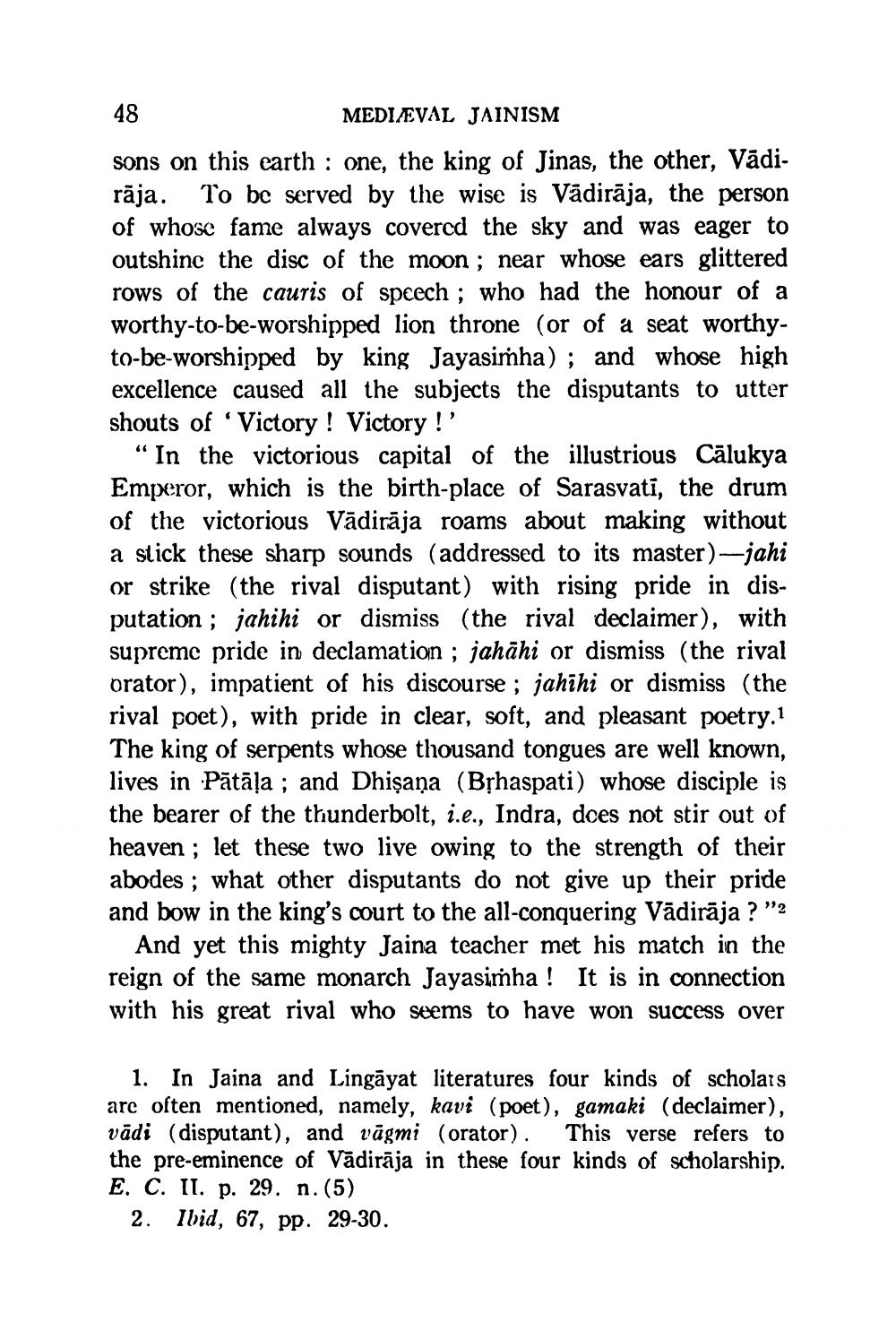________________
48
MEDIÆVAL JAINISM sons on this earth : one, the king of Jinas, the other, Vādi. rāja. To be served by the wise is Vādirāja, the person of whose fame always covered the sky and was eager to outshinc the disc of the moon ; near whose ears glittered rows of the cauris of speech ; who had the honour of a worthy-to-be-worshipped lion throne (or of a seat worthyto-be-worshipped by king Jayasimha) ; and whose high excellence caused all the subjects the disputants to utter shouts of Victory ! Victory!'
“In the victorious capital of the illustrious Cālukya Emperor, which is the birth-place of Sarasvati, the drum of the victorious Vādirāja roams about making without a stick these sharp sounds (addressed to its master)-jahi or strike (the rival disputant) with rising pride in disputation ; jahihi or dismiss (the rival declaimer), with supreme pride in declamation ; jahāhi or dismiss (the rival orator), impatient of his discourse ; jahihi or dismiss (the rival poet), with pride in clear, soft, and pleasant poetry.1 The king of serpents whose thousand tongues are well known, lives in Pātāļa ; and Dhişaņa (Bịhaspati) whose disciple is the bearer of the thunderbolt, i.e., Indra, does not stir out of heaven ; let these two live owing to the strength of their abodes; what other disputants do not give up their pride and bow in the king's court to the all-conquering Vădirāja ? "?
And yet this mighty Jaina teacher met his match in the reign of the same monarch Jayasimha! It is in connection with his great rival who seems to have won success over
1. In Jaina and Lingāyat literatures four kinds of scholars arc often mentioned, namely, kavi (poet), gamaki (declaimer), vādi (disputant), and vāgmi (orator). This verse refers to the pre-eminence of Vădirāja in these four kinds of scholarship. E. C. II. p. 29. n.(5)
2. Ibid, 67, pp. 29-30.




